In modern civil and industrial construction are widely used self-leveling mixture for flooring. All of them have the property under the action of gravity to spread and create a perfectly flat and strictly horizontal surface. There are pros and cons of self-leveling floors: reviews of the owners on this account are ambiguous. In order to make a decision about the device in your home of such a floor, you need to study them all. In addition, you should be familiar with the process of pouring a self-leveling floor, consumption per 1 square. m of material, as well as the rules of operation and care for this type of coating.
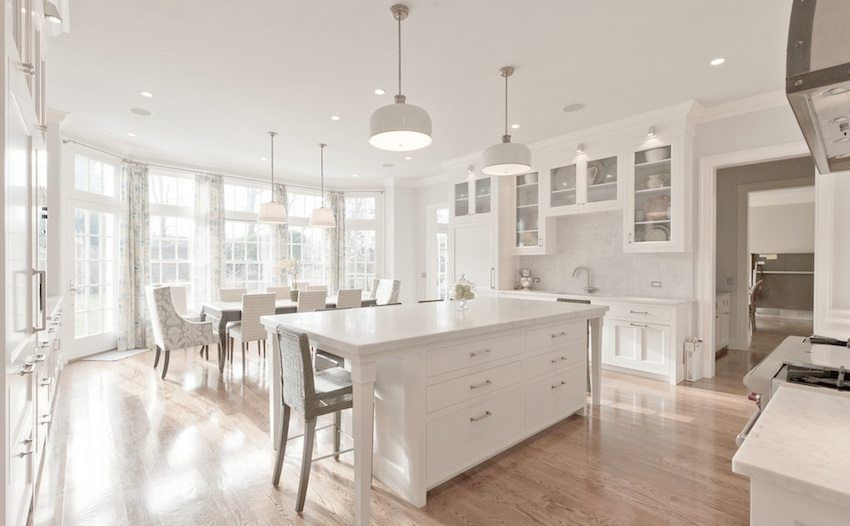
Types of self-leveling floors and their characteristics
Self-leveling compounds are used in buildings for any purpose. Industrial enterprises, warehouses, trade pavilions and supermarkets, residential buildings and apartments: everywhere you can find a floor made using this technology. All variety of mixtures can be grouped into 4 large categories:

- cement-acrylic compositions include polyacrylate copolymer, cement, high-strength aggregate, sand, lime and plasticizers. The floor of such components can only be draft. It is used as a base for a topcoat made of linoleum, laminate or tile. However, such a floor was originally designed for use at food production facilities. He is not afraid of spilled fluids, rolling heavy carts and disinfecting with caustic substances;

- mixtures of polyurethane have a very high resistance to mechanical stress. Thanks to the polymeric components which are their part, such floors are elastic and resistant to attrition. Floors from such mixtures can be arranged in rooms where frequent vibration or other movements of the floor are observed. However, the most common area of their application is private construction. The reason for this – elegance, lightness and durability combined hygienic and resistance to stress;

- Epoxy resin compounds are solid and chemically neutral. At the same time, they have a fairly low elasticity, which is why reviews of the owners of self-leveling floors are so contradictory. The pros and cons of such mixtures must be studied thoroughly before use. Such floors can be poured on any base: wood, metal or concrete. The layer turns out very thin, deprived of seams and wearproof. The chemical properties of epoxy resin suggest greater resistance to the effects of alkaline and acidic compounds, as well as salts. They are used in the food and chemical industries. At facilities related to the repair or parking of motor vehicles, they are simply irreplaceable, since they are not susceptible to leaking fluids. Due to its ecological cleanliness, such floors are widely used in residential premises;

- Methyl methacrylate floors have truly unique properties. The basis of these mixtures are resins. In the process of mixing the resin with a hardener, the whole composition is polymerized. Basically, such floors are made at industrial facilities. They can be found even in the open air, as they are not susceptible to sharp fluctuations in temperature and ultraviolet radiation from the sun. Used additives of various types, can greatly change the physical properties of such floors. This applies to heat resistance, hardness and resistance to adverse environmental influences.

Helpful advice! As many owners say, for the arrangement of a rough base for laminate or linoleum, a self-leveling cement mix floor is quite suitable. He will fully fulfill his mission, having a much lower cost.
Each of these types has its pros and cons. Reviews of owners of self-leveling floors, with all their inconsistency, converge to some undisputed facts.
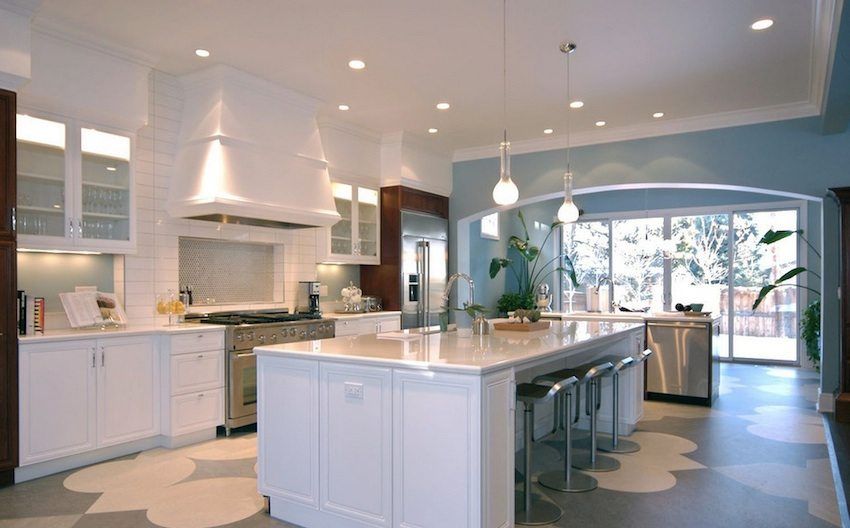
If we summarize all the reviews of the owners of self-leveling floors, we can distinguish the following advantages:
- excellent wear resistance and low susceptibility to impact. If you put heavy furniture on it or drop something massive, nothing happens to the floor;
- long operation. Except remarkable appearance, decorative bulk floors please with the practicality;
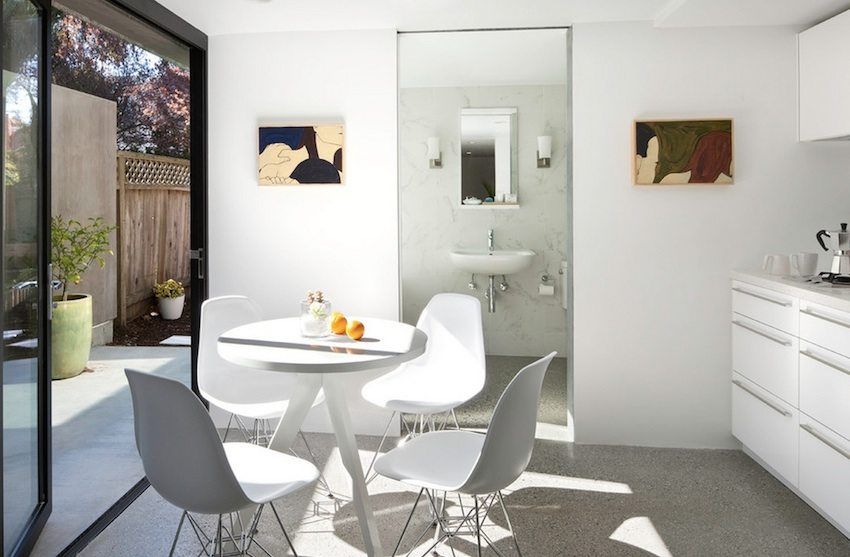
- the absence of toxic components is well suited to allergies, and the non-susceptibility to fire indicates their additional safety;
- excellent impermeability, impermeability and dust protection. They are very easy to clean, the floors have no cracks or cavities where dust can accumulate. Absolute moisture resistance makes them a good solution when constructing a bathroom floor;

- possibility of the choice of the suitable bulk floors. Consumption per 1 square. m. they also have a different, which greatly affects the cost;
- the foundation of the floor does not need long and careful preparation. This reduces the overall cost of repairs, which is also important;
- simplicity and convenience in carrying out work on the device floors.
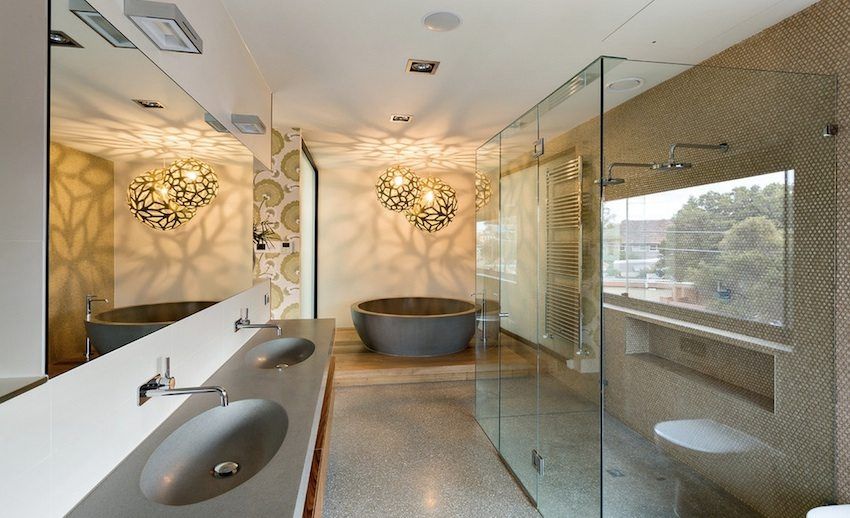
Separately, according to reviews of owners of self-leveling floors, the pros and cons of each type of self-leveling mixtures.
So, the advantage is that methacrylate mixtures polymerize very quickly and can be laid even at negative ambient temperatures. At the same time, there is a minus. Their quick and professional styling is required due to instant hardening, as well as airing the room due to a strong odor.

The advantages of epoxy mixtures in their resistance to chemicals and the ability to create a decorative layer. The disadvantage is poor elasticity, which makes it impossible to use them in places with impact and other types of deformation.
Polyurethane mixtures have wear resistance, durability and lightness – this is a plus. However, the floor of such mixtures is difficult to mount, because of the need for careful leveling of the base and the presence of low humidity – we write in the minus.
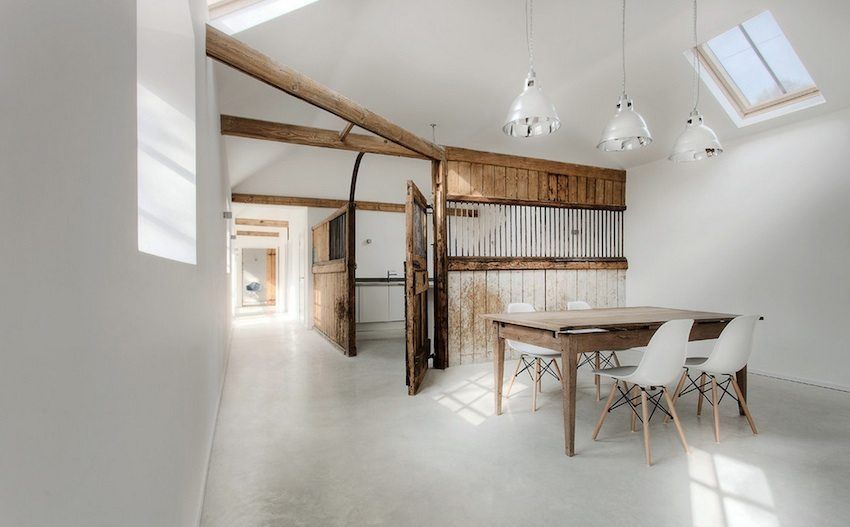
The advantages of cement formulations are: good adhesion with the base, impressive coating thickness, which can reach 12 mm. This floor is not slippery. However, it is quite time-consuming to install, which can be attributed to the minuses.
Helpful advice! Experienced builders believe that at least two people should produce a fill of the floor. This is necessary not just for convenience, but also to avoid drying the mixture. After all, this will take only 20 minutes.
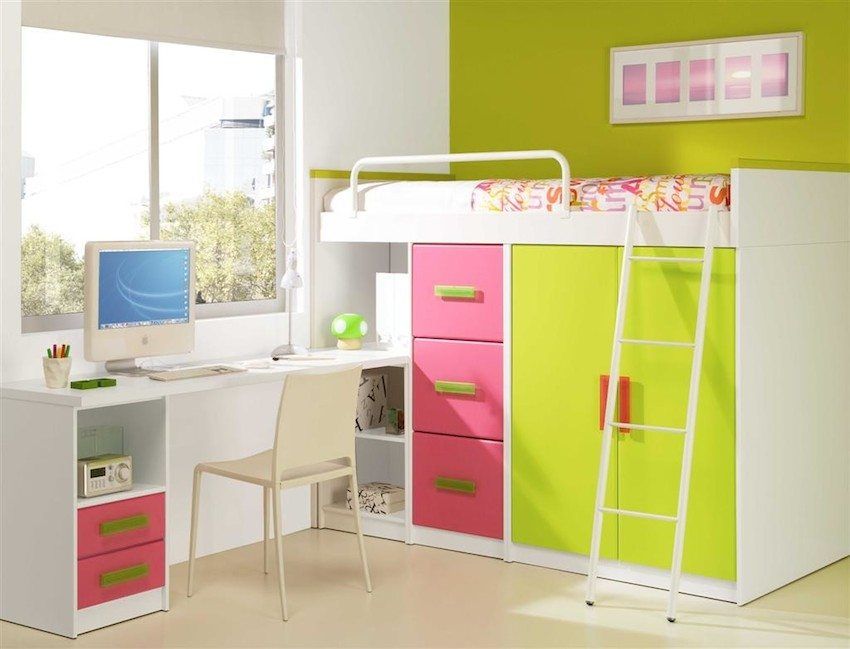
The process of pouring the self-leveling floor: consumption per 1 square. m
In order to avoid a large consumption of 1 square. m of a bulk floor, it is necessary to prepare the basis. As a rule, no special actions are needed here. Enough to thoroughly clean it from dust and dirt, putty large potholes and cracks. For better adhesion can be covered with a layer of primer. If the surface is smooth, then quartz chips or other similar material are added to the primer.

Then you need to familiarize yourself with the instructions for preparing the mixture and make a batch exactly on it. It is important to properly assess your strength, as the mixture dries quickly. Therefore, its quantity should be small. Stir the solution using a construction mixer or a drill with a nozzle in a bucket, until it becomes a homogeneous mass, both in consistency and in color.
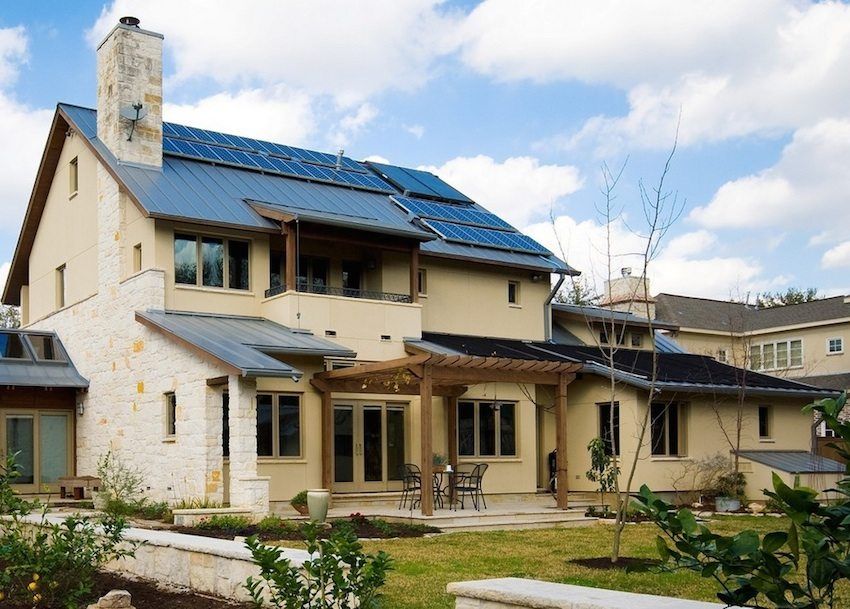
When everything is ready, the mixture is poured into the far corner of the room, roller. Under the action of gravity, it spreads over the room in a thin layer. As leveling, the amount of the mixture is added until the entire room is filled with a layer of the required thickness.
- It is necessary 5 days after pouring a self-leveling floor with a decorative coating to apply a protective film on it in several layers.
- Wet cleaning should be done in any well-known way.
- During the general cleaning, which should be carried out at least once every six months, you need to clean the coating with detergents.
The correct device and operation of the self-leveling floor create comfort and coziness in the living room, while at industrial and commercial sites they allow to use the durable and durable floor seamlessly.

